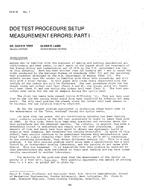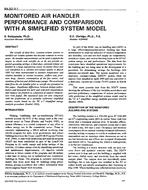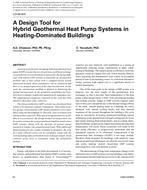Although it is well recognized that sorption by building materials has the potential to significantly alter the dynamics of contaminant dispersal and may, in some cases, completely dominate it, very few IAQ models have successfully incorporated the sorption effect into consideration. Models are needed which can to account for the sorption mechanisms of different types of building materials under different environmental parameters. In addition, sorption may have significant impact on the transport of VOCs indoors, personal exposures, ventilation strategy, and energy consumption in buildings. The ultimate objective of this research project is to obtain a useful, reliable, and possibly simple VOC sorption model for building materials that can be used for IAQ design. Given the fact that a considerable number of investigations have been conducted and the corresponding results have been published in the literature, Phase I of the project is aimed at the following:
1) Conduct a literature review;
2) Obtain reliable experimental data for modeling sorption under different environmental conditions, such as temperature, relative humidity, and air velocity;
3) Evaluate the applicability of existing sorption models for IAQ design and recommend whether a subsequent phase of research is necessary.
Principal Investigator: J.S. Zhang, National Research Council Canada
Conducted: April 1999 – July 2001
Sponsored by: TC 4.10, Indoor Environmental Modeling, and TC 2.3, Gaseous Air Contaminants and Gas Contaminant Removal Equipment
Product Details
- Published:
- 2005
- File Size:
- 1 file , 3 MB
- Product Code(s):
- D-8234


